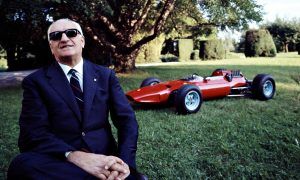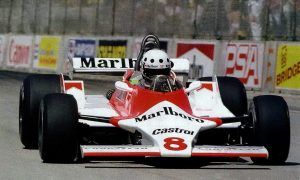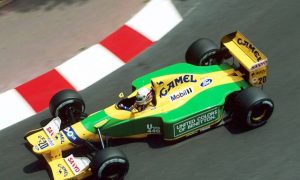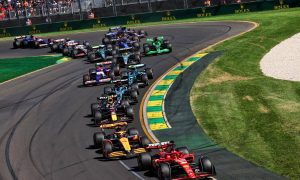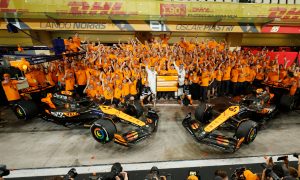F1i's Eric Silbermann looks at the Strategy Group's latest meeting and says the real issues in Formula One continue to be ignored
As a freelancer in this game, I hate meetings. If I had to explain why the human race will never reach its full potential, I’d put it down to meetings. They never achieve anything really and I reckon their main purpose is to make the other, usually underworked, people at the meeting look busy for a few hours, in between checking their social media sites. If they’re really lucky, it’ll involve a lunch, which they tell you about in conspiratorial terms, as though, under normal circumstances, you yourself would never eat. “There’s a lovely new pop-up tapas bar opened up round the corner and I’ve been looking forward to trying it,” they say: the subtext being they didn’t want to spend their own money, but now that it’s a working break during a daylong meeting, they can fiddle it on expenses.
We can be sure that the F1 team bosses on the Strategy Group that met yesterday at FOM’s Biggin Hill HQ, plus Bernie Ecclestone and Jean Todt don’t need some bogus excuse to tuck into an expensive meal. Actually, given Biggin Hill’s culinary reputation, they probably settled for sandwiches, but at least the non-UK attendees could land their private jets there, which on balance is more useful than going to some chichi restaurant in Soho.
However, when grub was cleared from the table to be replaced with a grubby agenda, the majority of attendees probably want to maintain the status quo and, when you don’t really want to change anything, then calling a meeting is the best way to achieve your goal.
Bernie has said the main problem with F1 is that he no longer has the power to run the sport like a dictatorship and it’s now run as a weak democracy, with no irresistible force to bash it into shape. That’s partly true but not entirely, because while a democracy is meant to result in justice for all, in this case, the democrats at the table are all individual dictators, only interested in what’s best for them. They don’t own the shop, they just mind it: you only have to see the rictus smiles on the faces of Toto Wolff, Maurizio Arrivabene, Eric Boullier, Christian Horner et al if ever their guvnors turn up at the race track, to understand they just want to win at all costs to keep their jobs and hang the underdog. And when the occasional tidbit is fed to an underdog, you can be sure it has to do some pretty humiliating things at those Underdog Obedience Classes. Need I say more?
The likes of Ron Dennis and Frank Williams established their teams the hard way, but I’m sure they know no one can come into F1 today running a small operation out of some little warehouse, because the sport’s changed too much. Back in 1987, I was involved in the start up year for the Larrousse team and the boss walked me into an empty warehouse and presented me with a new delivery of tool boxes, a couple of Cosworth V8s and a total workforce of 12. I believe some kart teams are better funded than that these days.
But there has to be a way for the major teams and the motor manufacturers to race alongside privateers, without it being too much of a David and Goliath situation. The reason is clear, if the David’s all disappear - sling their hooks one might say - then the Goliaths are left to have the same tedious fight race after race. A few well-funded bullies preening and posing round the track does not make for an interesting afternoon of sport. Good contests rely on credible opposition. If I can be UK centric for a moment, the freshly re-elected Tories have the upper hand, but the small Scottish party is going to run them ragged now, which will be fun to observe and that’s what a well-funded little team can do in F1.
Where I do feel Bernie has a real point is that these new technical rules are the biggest part of the problem. I drive a run of the mill 3 cylinder mass-produced car and it features most of the so-called “revolutionary” technology seen on the F1 cars since last year. Who cares that F1 is using it now and claiming it as a major step forward? Not you the fans, that’s for sure. But we’re stuck with them now, because these things can’t be changed overnight. And it’s the huge costs of racing under these rules which means the big teams really must do more to keep the show on the road, by bolstering their opposition. No one is going to object to bigger payments based on results, but getting more money simply because you’ve been around a long time is plain wrong and will eventually drag this sport down.
That’s why the statement from the FIA issued today makes no concrete statement about helping the smaller teams. The points it does make are all minor tweaks, such as those to the tyre rules for 2016 – a potential huge logistical cost to Pirelli – and some more changes for 2017, which will only add to the cost of the sport not reduce it. Refuelling? You’re going to need to rebuild all those rigs you put in the attic or get new ones and you’re going to pay about $250 a kilo to ship them round the world and you’re going to need about 3 more pit stop personnel, which will involve changing the rules about staff numbers at the races.
Will you, the fans, like that? Maybe, but I bet you still won’t understand why Daniel Ricciardo will drop several places on the grid for using a fifth engine. Once a manufacturer has developed an engine, there’s not much difference in cost between building four or ten. Indeed Renault is going to have to build who knows how many of theirs, just so that the two Red Bull boys can make it to the grid in Abu Dhabi in November. Maybe the money isn’t being saved in the right areas – did I mention the private jets at the Biggin Hill airfield?
You see it's all a question of perception: the FIA used hardly any words in the statement they’ve just issued to make the point that they decided hardly anything, whereas I've used loads of words and made a lot of noise to put my point across. And as far as F1 is concerned, bigger is definitely better. For the next meeting of the Strategy Group, in order to sharpen things up, I suggest they adopt the modern practice of holding the meeting standing up, with chairs available only to octogenarians.
However, in the short term, we can still look forward to an enthralling season of Grand Prix racing, thanks to Nico Rosberg stopping the internecine rot in Spain, the fact that Ferrari are on the up and that we can expect more from teams like Williams, Red Bull and Lotus. Plus there’s the fun of watching Jenson Button and Fernando Alonso pushing a huge Honda boulder up a steep hill, only to watch it roll back down again. But remember, Honda said they only returned to F1 because of the challenge of these new engine rules. (I always like to leave my audience laughing).
Click here for a light-hearted look at some of the scenes from the Spanish Grand Prix
Keep up to date with all the F1 news via Facebook and Twitter







